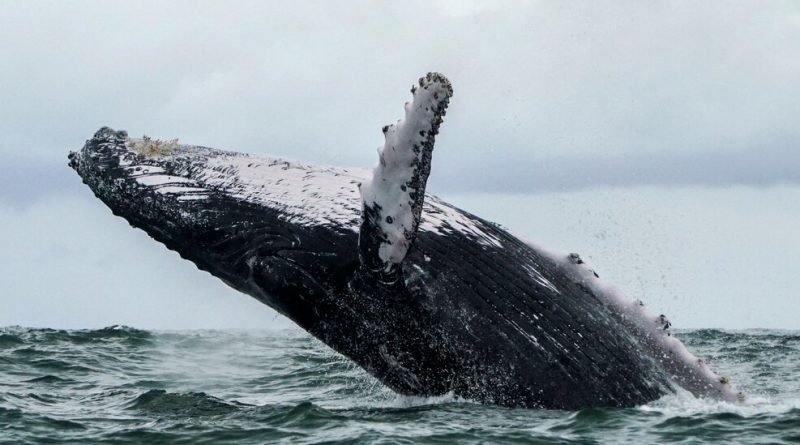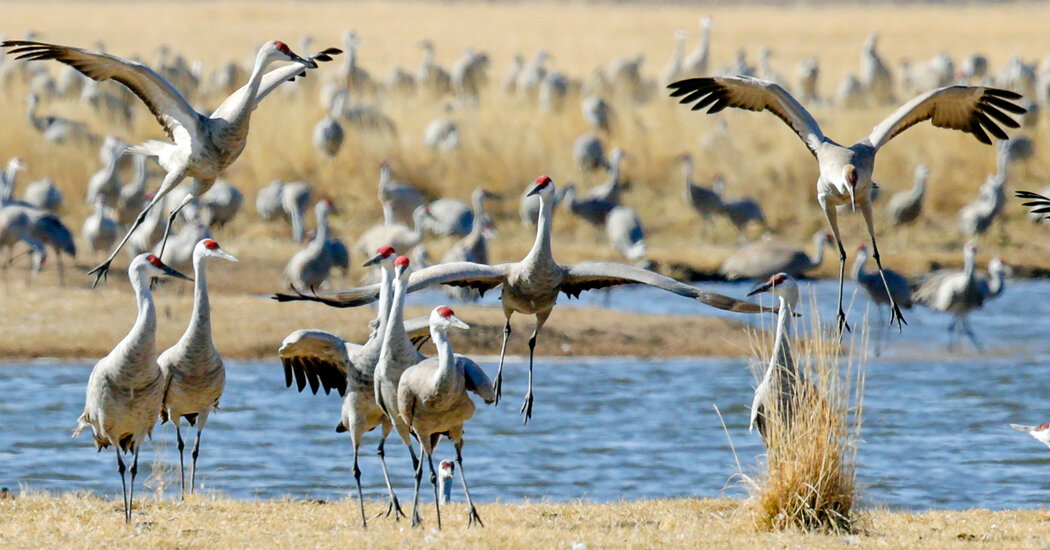Humpback Whale Nearly Eats a Lobsterman, Then Thinks Better of It
It was sunny and clear on Friday morning and the water was calm off the coast of Provincetown, Mass., where Michael Packard was diving for lobsters.
His longtime fishing partner, Josiah Mayo, was following him in their fishing vessel, the J&J, tracking him through the bubbles that rose from Mr. Packard’s breathing gear to the surface of the water.
The men had already caught 100 pounds of lobster, and Mr. Packard was about 40 feet underwater, looking for more.
Suddenly, the bubbles stopped, Mr. Mayo said. Then, the water began to churn violently. A creature breached the surface and for an agonizing split second, Mr. Mayo thought it was a white shark.
“I immediately thought it was the shark encounter that we’d unfortunately been preparing for for years,” he said in an interview on Saturday.
Then, he saw the fluke and the head of a whale. Moments later, he saw Mr. Packard fly out of the water.
“‘It tried to eat me,’” Mr. Packard sputtered, according to Mr. Mayo. The whale, a humpback, swam away as Mr. Mayo and another fisherman helped Mr. Packard back into the boat.
Such terrifying encounters are virtually unheard-of, according to Charles Mayo, Josiah Mayo’s father and a senior scientist at the Center for Coastal Studies in Provincetown, a town of about 3,000 people on the tip of Cape Cod. There is an account of a woman who was pulled down by a pilot whale. There are reports of sperm whales that went on the offensive after being harpooned. And in 1896, The New York Times reported the implausible tale of a whaler who was found in the belly of a whale in October 1891 and rescued alive.
“I’ve never heard of that ever happening,” Dr. Mayo said of Mr. Packard’s ordeal. Still, the encounter is explainable, he said.
The whale, possibly a 32- to 35-foot juvenile that had previously been seen swimming in the area, was most likely diving for food when it inadvertently caught Mr. Packard in its enormous mouth.
Humpback whales spend much of their time in that part of New England, searching for and engulfing small schooling fish, said Jooke Robbins, director of the humpback whale studies program at the Center for Coastal Studies.
They lunge fast, open their mouths and use baleen plates to “filter” the water out before swallowing the fish, Dr. Robbins said in a statement.
When the whale realized it had caught something that was not its typical prey — in this case, an unsuspecting lobsterman — it responded the way a human who accidentally ingested a fly would, Dr. Mayo said.
“We certainly don’t eat any more,” he said. “We spit the food out, and some of us would leave the restaurant.”
Accounts of Mr. Packard’s ordeal captivated Twitter on Friday. That afternoon, Mr. Packard told reporters that he was on his second dive, going toward the bottom of sea when he felt “this truck hit me.”
His first thought was that a white shark had attacked him, but when he did not feel teeth piercing into him, he realized he was inside a whale.
“I was completely inside; it was completely black,” Mr. Packard told The Cape Cod Times. “I thought to myself: There’s no way I’m getting out of here — I’m done, I’m dead. All I could think of was my boys — they’re 12 and 15 years old.”
Mr. Packard said he was in the mouth for at least 30 seconds, wondering whether he would run out of air or be swallowed. He said he struggled against the mouth of the whale and could feel its powerful muscles squeezing against him. Then, he saw light and felt the whale’s head shaking and his body being thrown into the water.
Mr. Mayo said he called 911 and an ambulance met them at the dock. He then called Mr. Packard’s wife.
“‘Hi, Mike is OK,’” Mr. Mayo recalled telling her. “You’ve got to lead with that.”
Mr. Packard, who was released from the hospital on Friday, had extensive bruises, but no broken bones.
On Friday afternoon, he wrote a cheerful note on a Provincetown community Facebook page, thanking the Provincetown rescue squad for helping him.
“I was lobster diving and a humpback whale tried to eat me,” he wrote. “I was in his closed mouth for about 30 to 40 seconds before he rose to the surface and spit me out. I am very bruised up but have no broken bones.”
Mr. Mayo said he initially thought Mr. Packard had broken his leg. As scared as he was for his friend, he said he felt a little relief that the season might be over.
But once he learned that Mr. Packard had not sustained any broken bones, Mr. Mayo said he knew the two of them would head out again soon.
Mr. Packard promised the same to reporters.
He said, “As soon as I heal up, I’ll be back in the water.”
Jack Begg contributed research.
Sahred From Source link Science



